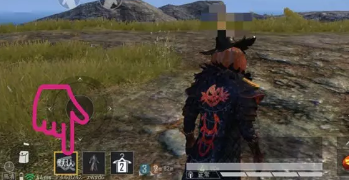digital currency code Top Reviews
The rise in food prices has pushed the wholesale inflation in the United States to accelerate unexpectedly. The prospect of interest rate cuts next year is uncertain. The wholesale inflation rate in the United States unexpectedly rose in November, and the soaring egg price masked the moderate impact of price increases in other regions. According to data released by the Bureau of Labor Statistics on Thursday, the producer price index (PPI) rose by 0.4% month-on-month, the biggest increase since June, and economists surveyed by Bloomberg expected a median of 0.2%. PPI increased by 3% compared with the same period of last year, the biggest increase since the beginning of 2023. The core PPI excluding food and energy increased by 0.2% from the previous month and 3.4% from the same period of last year. The CPI report released on Wednesday showed that the core inflation rate in the United States remained firm for the fourth consecutive month. This series of data brought uncertainty to the outlook of prices and interest rates next year, especially when Trump threatened to raise import tariffs after taking office. Economists pay close attention to the PPI report because several of its breakdown data will affect the personal consumption expenditure price index (PCE) that the Federal Reserve is concerned about. Although PCE data will not be released before the Fed policy meeting next week, central bank officials will have a good understanding of the data according to CPI and PPI reports. The market generally expects the Federal Reserve to cut interest rates by 25 basis points next week, but the pace of interest rate cuts is expected to slow down next year.Royal Bank of Canada: The European Central Bank may move towards negative real interest rate. Royal Bank of Canada BlueBay Asset Management said that the European Central Bank may cut the interest rate below 2% next year, which the agency estimated to be a short-term neutral interest rate. Kaspar Hense, senior portfolio manager of the institution, said in a report that the core inflation rate is expected to be around 2.5% in the first half of 2025, which means that the real interest rate will be negative. He said that under the influence of unfavorable factors such as trade, continuous competitive pressure from other countries and financial problems, this should play a moderate supporting role in the economy.European Central Bank President Lagarde: Protectionism will lead to short-term inflation. European Central Bank President Lagarde: Protectionism will lead to short-term inflation. Higher tariffs may lead to inflation in the short term; The final impact of high tariffs on inflation is uncertain.
European Central Bank President Lagarde: Enterprises are curbing investment, exports are weak, and labor demand continues to weaken. The employment opportunities created are decreasing, so economic development should be strengthened, and the economic rebound is slower than expected.Lagarde, President of the European Central Bank: The Transmission Protection Tool (TPI) was not discussed.Lagarde, President of the European Central Bank: The Transmission Protection Tool (TPI) was not discussed.
The US dollar just broke through the 7.2700 yuan mark against the offshore RMB, and the latest report was 7.2689 yuan, down 0.12% in the day; The US dollar against the onshore RMB was recently reported at 7.2688 yuan, up 0.10% in the day.European Central Bank President Lagarde: Economic growth is losing momentum.European Central Bank President Lagarde: Potential inflation and inflation continue to return to the target in the same direction.
Strategy guide 12-14
Strategy guide
12-14
Strategy guide 12-14
Strategy guide
Strategy guide
12-14


























